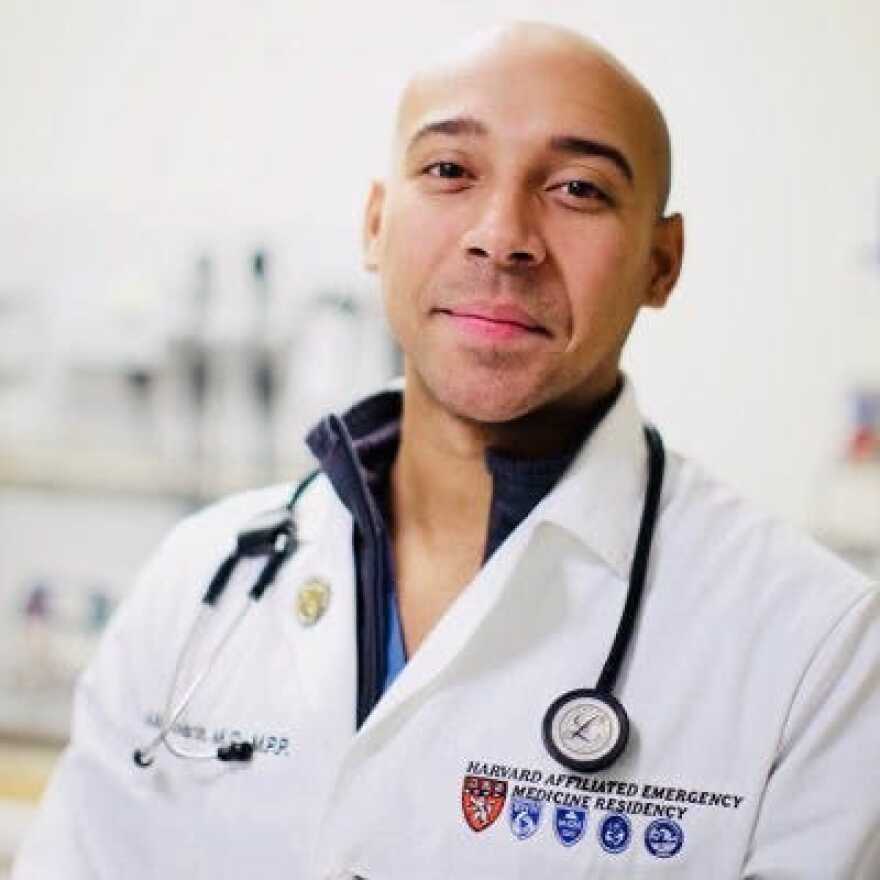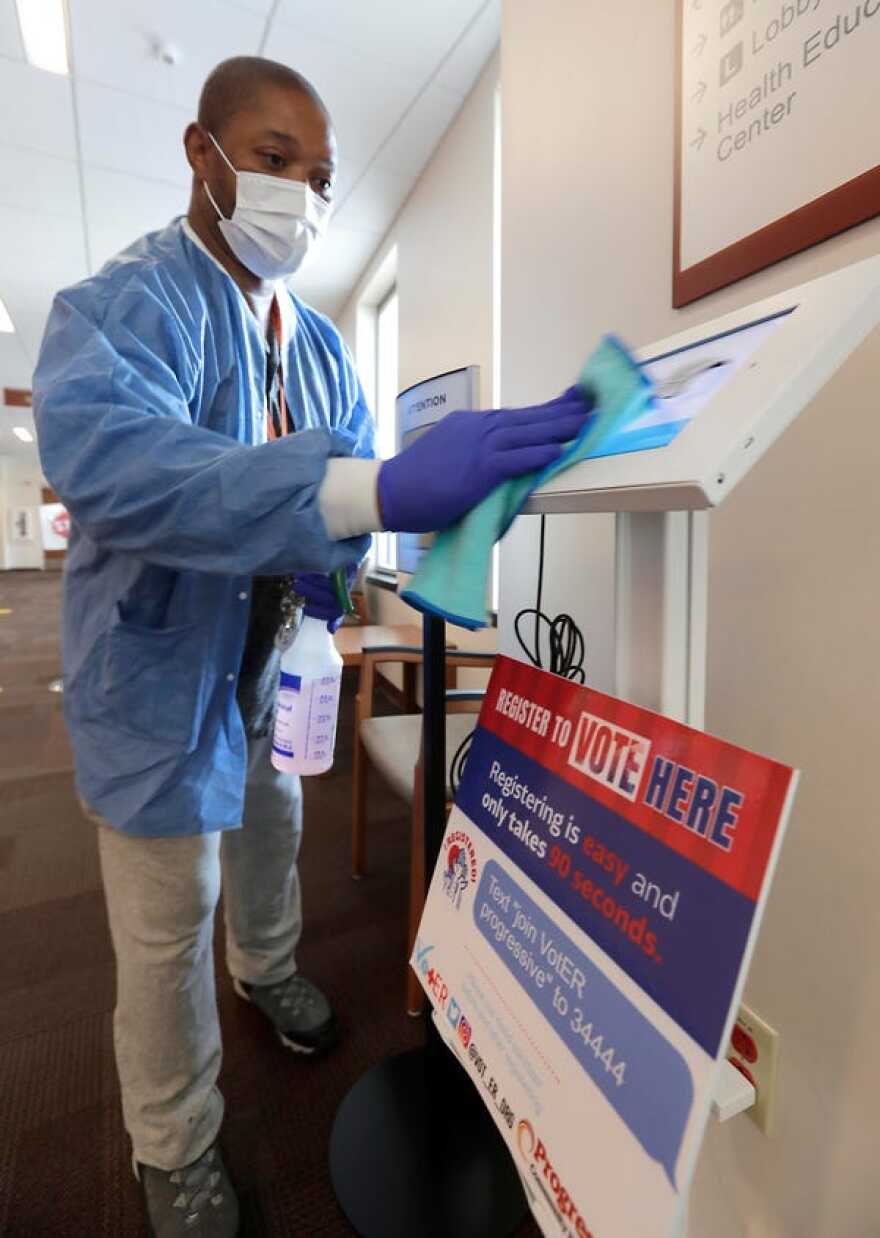Since the coronavirus struck, voter registration has fallen across the country compared to 2016, according to the Democratic data firm TargetSmart, as the traditional means of registering people became nearly impossible.
In Wisconsin, registrations overall for the months of March, April and May were down by more than a third, TargetSmart data shows.
“We know that voter registration numbers have been lower this spring and summer than they would normally be in a presidential election year,” said Barry Burden, a University of Wisconsin-Madison political science professor.
But a doctor in the Boston area has launched a new way to make sure people are ready to vote, and that idea has spread to Wisconsin: registering at your local health clinic.
The VotER program registers patients to vote while they wait at hospitals and community health centers. VotER is set up in 75 different health care facilities and hospitals across the country. Three Progressive Community Health Centers in Milwaukee are participating as well as a clinic in Madison.
VotER founder Alister Martin came up with the idea when he realized patients needed more help than he could provide.
“The inspiration for me for VotER came out of the patients that I see who I realize ‘I can’t solve your problem with a surgery. I can’t solve your problem with a nerve block. But you can solve your problem by voting,’” Martin said.
While working in the ER at the Mass General Center for Social Justice and Health Equity at Harvard Medical School, Martin began to see a pattern of the same demographics of people coming in for non-emergencies

“There are 50 million people in this country who are not registered to vote, and it turns out that the same demographic groups that are not registered to vote are the ones that need to go to places like ERs and community health centers, like the one in Milwaukee, to get their care,” Martin said.
VotER gets patients registered to vote in several different ways. In the hospitals there are posters with QR (Quick Response) codes that take patients to a voter registration portal; there are also QR codes on lanyards the physicians wear. Centers have iPad kiosks in waiting rooms for patients to register, and some clinics send out text messages with information about registering and reminders about local elections.
“I think there do have to be different approaches for voter registration this year, and this one sounds like it could be effective because ER and health facilities generally do serve a wide swath of the public,” said Burden. “And so, a registration effort there is likely to touch different parts of the population.”
That may be especially important for people of color. The data from TargetSmart revealed another wrinkle since the pandemic hit: The portion of the electorate that has registered to vote skews whiter than before the pandemic. Non-white voter registration in Wisconsin before COVID-19 was 9.81% of the electorate compared to 8.86% now.
Sarah François, director of fund development and marketing of Progressive Community Health Centers, says there has been a good response from patients. Nationally, the VotER team has gotten more than 800 people started on the voter registration process, and about 280 people have begun the process of requesting an absentee ballot.

“Most of our VotER outreach has been through via text message,” François said. “We’ve been sending monthly text messages to our patients letting them know that we also care about their civic health and want to encourage them to either update their registration, register to vote, get an absentee ballot, that kind of a thing.”
François said the VotER program was a natural for the clinic.
“We’ve always been advocating for our patients to have more equitable access,” said François. “And so this is just something that now has become more at the forefront of the public’s eye, and so we really want to take this opportunity to lead these efforts and make sure that our communities all have equal access to the services that they need.”
While behind in voter registration for the moment, Burden believes programs like VotER will help.
“I think it’s an essential first step and right now we’re behind from where we’d normally be,” he said. “So, I think it is useful to try and get people on the move now who might not have other opportunities to do so.”
Patricia McKnight is an intern for the Milwaukee Journal Sentinel's Ideas Lab. Her work is supported by a grant from the Solutions Journalism Network, a nonprofit organization that promotes reporting about responses to social problems. Email: PMcKnight@gannett.com




